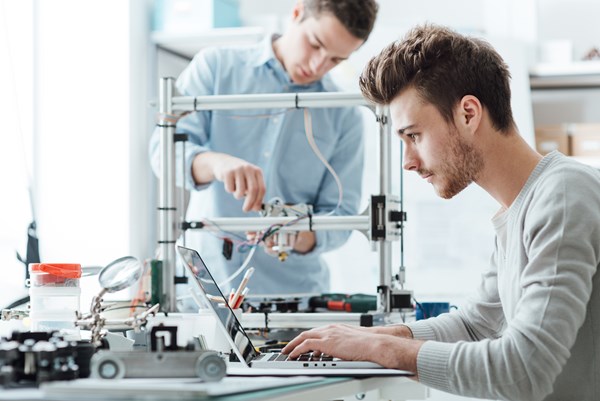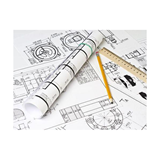This is the thrust and theme of the latest issue of ATSE Focus (Focus 201) which examines the role of engineering in our future.
Boundaries of all forms are dissolving – national, economic and technological – and are dramatically changing engineering roles, say leading engineers Ashley Brinson, Executive Director of the Warren Centre for Advanced Engineering at Sydney University and civil engineer Dick Kell AM FTSE, former head of Cardno and now chair of the Warren Centre.
"It is clear that the profession is changing, interactively with the societies that engineers serve and reactively with the technology the profession itself is creating," they write. "The catalogue of engineering disciplines is expanding with data analytics, robotics and artificial intelligence as Australian engineers shape our highly globalised profession."
Engineers own aspirations, growing concerns about security and disruption and new social expectations are also part of the global future engineers confront.
Engineers are in for an exciting ride, writes Tony Barry FTSE, former Aurecon head and Board member of the International Federation of Consulting Engineers.
"We are in a new era of creativity which will deliver a new future for our infrastructure and our buildings," he writes, noting our built environment is fast changing.
"This is an outcome of social and economic demands, changes in skill and resource supply, business models, workplace practices, technological development and disruption as well as a creative exploration of the possible and the strength of human aspiration."
With their abundance of knowledge and experience and a healthy global perspective, Australian environmental engineers have much to offer the global engineering industry, says Adrian Piani, Chair of the Environmental College of Engineers Australia.
"Australian environmental engineers bring a unique blend of knowledge, skills and perspective and are a significant potential export for Australia," he writes.
Australia’s geographical complexity and the national interest in a healthy environment gives our environmental engineers a great contextual understanding of the value of our natural systems, and sensitivity to environmental and social outcomes, he says.
Four leading academics say it’s time to review our engineering education – last done a decade ago – as new thinking is needed to ensure Australia can deliver top-quality engineered products and services in future.
"Perhaps, more than any other profession, engineers (in all occupations and disciplines) know that the science, materials, tools and methods they use, and the problems they solve at the start of their careers will change, not least because of the work of engineers," write Professors Doreen Thomas FTSE, Robin King FTSE, John Richards AM FTSE and Ian Cameron FTSE.
The boundaries for engineers are very few, writes Dr Bronwyn Evans FTSE, herself and engineer and CEO of Standards Australia.
She quotes Engineers Australia’s definition of engineers as "scientists, inventors, designers, builders and great thinkers … who … improve the state of the world, amplify human capability and make people's lives safer and easier" as underpinning the emerging horizons for engineers.
Dr Jim Patrick AO FTSE, a pioneer engineer of the cochlear implant, says that today’s biomedical engineering is boosting our quality of life.
"The impact of contributions from biomedical engineering to medical devices is generally expressed in quantitative terms such as patient benefit and the size and growth rate of the company that is making and selling the resulting products," he writes.
"For the product designers and the people involved in producing these products, however, the best understanding of the impact of their products is obtained by talking to recipients. Their personal accounts of how their lives have been changed are remarkable."
Defence Chief Scientist Dr Alex Zelinksy FTSE says collaboration and partnerships between engineers and scientists are key to developing ‘game-changing’ outcomes for Australia’s defence capabilities.
"Nowadays, the breakthroughs come from the efforts of many engineers and scientists working in a wide range of disciplines in a multitude of organisations located across the globe," he writes.
"The development of future defence capabilities today depends on the ability to form research partnerships across institutional and national borders."










